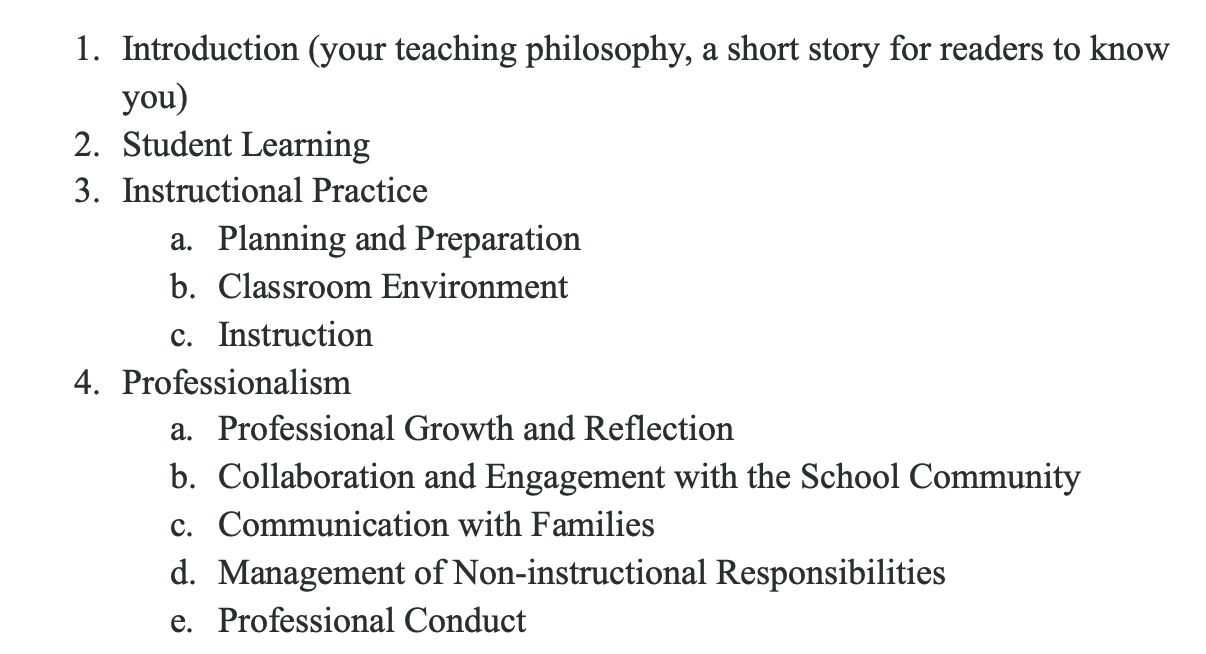The Ultimate Guide of How to Write Your Tenure Portfolio for NYC Teachers
Public school teachers in New York City can apply for tenure in their fourth year teaching, and will be officially tenured after the probationary period of four years and one day. The traditional tenure binder becomes a digital portfolio in 2020 and 2021 due to COVID-19.
I started teaching on September 2016, so I applied for my tenure in April 2020, and I’m officially tenured on September 17, 2020. (The first day of this school year was September 16.)
What exactly should I include in my tenure portfolio?
“I have created so many charts and resources in the past years, and I don’t know which ones I should put in my tenure portfolio.”
When you go through all your beautiful charts, checklist, graphic organizers and other wonderful self-created materials, imagine a moving box for the materials you will put in the tenure portfolio.
You cannot choose everything because the the box is only this big.
Ask yourself: Do I want to include this because I spent a lot of time making it or my students did better with them?
Only the ones that help improve your students’ performance should go into this “box”.
Take a look at the first two columns of the Teacher Tenure Decision Making Framework.
It is self-explanatory that Student Learning is about your students. Instructional Practice may look like it’s about you, but read carefully: you need to include “multiple sources of evidence indicating practice at the most effective level.”
How do you or your supervisor know if your teaching is at the most effective level?
You observe if everyone is fully engaged, and assess if everyone is able to meet the learning objective (with the support and scaffolds you provided).
As a result, the first two sections of your tenure portfolio should be student-oriented. Pick the materials that really help your students stay engaged and achieve learning goals.
What if I don’t have enough materials for my tenure portfolio?
“I feel like I meet all the requirements but I don’t have enough physical evidence to show that.”
First, the total page number is no indication of the quality of the portfolio, or how good or bad a teacher you are. Ask your principal what’s his/her understanding of “multiple resources”, so you will have a clear goal of how much evidence you need to gather.
Focus on what you have, and let overachievers be overachievers.
Then you can ask yourself the same question to decide what materials to include: Did my students do better with this?
Now you put everything you need in the box, it’s time to unpack and set up your tenure portfolio with these tips and strategies:
Organize your standardized data by using “From x to y from a to b” Model
Amy’s reading level moved from A to F from September 2020 to January 2021.
Joe’s ENL level moved from Entering to Transitioning from September 2018 to September 2019.
2. Use specific data goals
Don’t say: 70% mastery in math concepts
Say: 70% mastery in three-dimensional shape recognition
Don’t say: John’s reading comprehension skills have improved.
Say: John is able to describe character traits and support the traits with multiple evidence from the text.
Visit the Common Core State Standards Initiative for examples of specific learning goals.
3. Visualization tools help, (but they don’t need to be fancy.)
Fantastic visualization tools that are complex may not be right for your needs.
The most simple but effective chart you could insert in your tenure portfolio is a table, which is a great tool to present your standardized data and show student growth.
Color coding allows your audience to identify the growth visually and quickly.
4. Focus on Your English Language Learners and Students with Disabilities
Let’s admit it. It’s harder to teach ELLs and Sped students because their needs are various, and they need more individualized support and scaffolds. (That’s why IEP stands for Individualized Education Program.) Only a teacher who knows his/her students well can offer what the students need to achieve the same goal as their peers.
Demonstrating the growth of an English Language Learner with special needs by showing:
student work from pre-assessment
your analysis based on anecdotal notes and observations
individualized materials created to meet this student’s specific need
evidence of teacher modeling and student applying in his/her work
student work from post-assessment to show growth in specific areas
5. Use the bullet points to build your framework
The most straightforward way to ensure you have all the required parts is to use the bullet points from the Teacher Tenure Decision Making Framework as headings of your tenure portfolio. Start with this framework, and personalize the headings later if you like.
This saves your time searching for a template or framework, and it’s 100% aligned with the Teacher Tenure Decision Making Framework.
My procrastinator friends, don’t be afraid to start! Write anything you have in your mind first, because you can always revise them later. All things are difficult before they are easy. So get started today!




